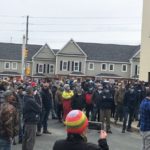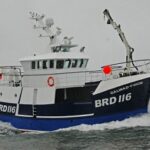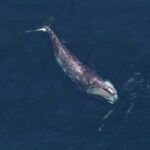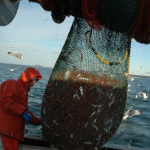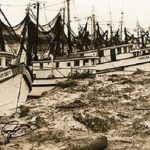Tag Archives: lobstermen
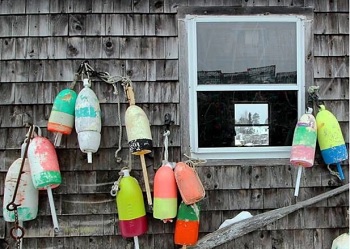
Lobstermen Protest Offshore Wind Farm in the Gulf of Maine
An ambitious wind power project in the Gulf of Maine could, years from now, make these family lobster dinners less frequent. Local lobstermen believe offshore wind will significantly disrupt the ecosystem and displace fishermen. Supporters say a project will provide clean energy for the region.,, “When you think of Maine, lobster’s the first thing that comes to mind,” Dustin Delano, a fourth-generation lobsterman and the Vice President of the Maine Lobstermen’s Association, told me a story about fishermen from the United Kingdom coming to Maine a few years ago to discuss the windmill arrays which had been recently installed where they fish. One Mainer asked, “What would you do if you were us right now?” An English fisherman leaned over the table and said, “Fight it with everything you have, because you have everything to lose and absolutely nothing to gain.” >click to read< 17:04
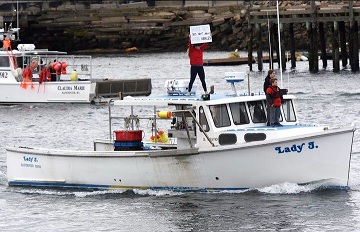
Parading in protest – Lobstermen call for abolishment of closures
About 40 lobster boats participated Wednesday in the boat parade protesting Massachusetts’ current closure of virtually all of its state waters to commercial lobstering as a protection for the North Atlantic right whales. The boats, which primarily hailed from Gloucester, Manchester and Rockport, staged around Ten Pound Island in the late afternoon and then headed in single file toward the head of the harbor. Nancy MacDowell of Rockport was at the state fish pier to support her lobstering family in its effort to bring awareness to the closure and the negative impact its is having on those who lobster in state waters. photos, >click to read< 09:05
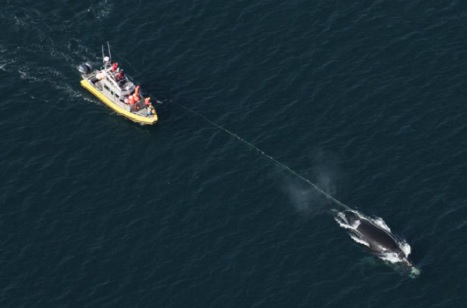
#ShowUsTheRope – Blamed for Right Whale Entanglements, Lobstermen say Show us the rope!
Snow Cone has triggered an outcry of frustration from fishermen, who say they’re being unfairly blamed for the decline of the critically endangered species. On Wednesday, March 10, a team from Provincetown’s Center for Coastal Studies freed Snow Cone from 300 feet of rope. The center described the team’s success on its Facebook page, and used a photo from an aerial survey that shows the whale and the telltale rope from 1,000 feet in the air. “So, I remember seeing this,” said Nick Muto. The Facebook post said the retrieved rope likely came from a fishery, but there was no close-up picture. “So my hashtag, #ShowUsTheRope, is me trying to lay it right on the Center for Coastal Studies,” >click to read< 20:06
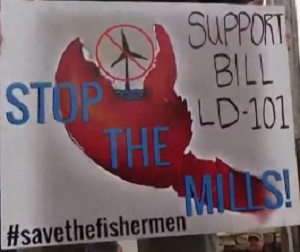
Lobstermen united against Monhegan offshore wind project
In one of Maine’s biggest lobster harbors, close to 100 fishermen and their supporters packed the town dock to stand, side by side, in opposition to offshore wind power development in the Gulf of Maine. For the fishermen, the events of the week have hardened their resolve to fight the wind turbine project, which they say will be just the beginning of more platforms being installed in years ahead. They insist the development will damage the Gulf of Maine, “It’s not about anti-wind, it’s not about anti-green,” said Friendship wharf owner Jim Wotton. “It’s about preserving the Gulf of Maine.” Video, >click to read< 12:21
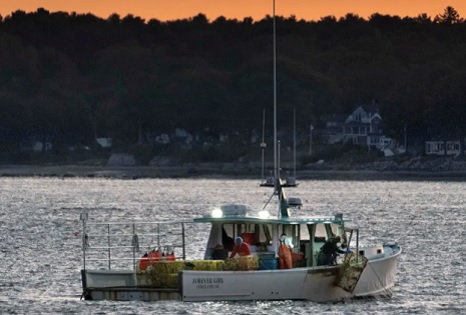
The Intense, Lobster-Fueled Fight Over America’s First Floating Wind Farm
On Sunday, local Maine outlets reported that a slew of fishing boats gathered in a show of protest against a planned wind project in midcoast Maine. While the weekend flotilla of fishermen was peaceful, tensions continued to rise on Monday. That’s when the wind project’s owners accused three fishing boats of intentionally surrounding a research vessel that was out for an ocean floor survey, “creating an unsafe situation” that forced them to suspend operations,,, >click to read< 09:55
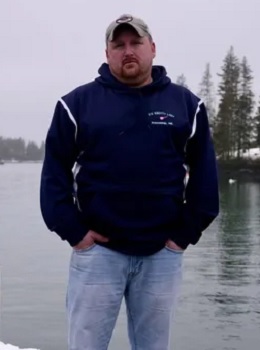
Maine lobstermen protest Monhegan-area wind project
More than 80 lobster boats lined up between Monhegan Island and Boothbay Harbor on Sunday to protest a seabed survey for a planned offshore wind turbine near Monhegan. “The boat hasn’t been staying in the survey route, and there’s been some issues with gear loss,” Dustin Delano, a lobsterman from Friendship who helped organize the protest, said this weekend. Delano estimated that more than 80 boats joined him around 9 a.m. Sunday south of Monhegan Island, where a 12-megawatt test turbine billed as the first commercial-scale project in the nation would demonstrate the  viability of offshore wind as a renewable power source. The fishermen formed a single-file line that Delano said stretched roughly 2 miles, and then traced the route back to land. >click to read< 07:05
viability of offshore wind as a renewable power source. The fishermen formed a single-file line that Delano said stretched roughly 2 miles, and then traced the route back to land. >click to read< 07:05
Dozens of lobster boats gather off Monhegan to protest floating wind turbine – Gov. Janet Mills is proposing to build more of the floating wind turbines farther offshore in the Gulf of Maine. video, >click to read<

Maine DMR to talk with lobstermen about floating offshore wind baloney
The Maine Dept. of Marine Resources will be holding meetings to engage with Zone Councils D, E and F who have fishermen who fish in the area being reviewed for the potential of a floating offshore wind Research Array in federal waters. The DMR will explain its role in the process, provide an overview of the project and then focus discussion on the information available about fishing activity in the area, identify gaps in that data, and summarize feedback received through conversations with industry members.“We hope to solicit feedback from the lobster industry about our understanding of fishing activity and use in the area of interest,” >click to read< 10:50
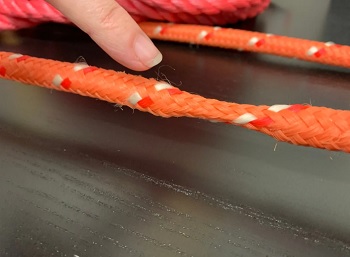
Lobstermen say proposed Right Whale rules are expensive, dangerous, and based on outdated data
During the final public hearings, Maine Department of Marine Resource Commissioner Patrick Keliher echoed a statement put out by Gov. Janet Mills earlier that week stating that “a one-size-fits-all approach in the state of Maine will not work.” Fishermen and environmentalists voiced concerns over the science federal regulators were using to make decisions, including the number of right whales alive today, how many have been harmed by entanglements or struck by ships and the effectiveness of proposed gear changes. “We all agree on one thing,” said Matt Gilley, a Harpswell lobsterman who spoke up at the virtual meeting. “That is that the data is flawed. In what direction, that remains to be seen.” >click to read< 11:10
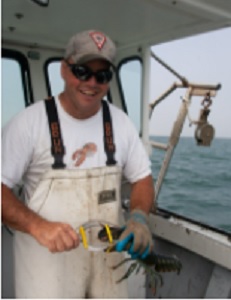
Massachusetts Lobstermen fear end of their livelihood
Dan Pronk is worried a new set of proposed NOAA and NMFS restrictions aimed at saving the North Atlantic right whale could be the nail in the coffin for the lobstering industry on Nantucket. “We’ve got five years left of lobstering down here,” said Pronk, the only commercial lobsterman on Nantucket, and one of only a handful of lobstermen around the region with traps south of Nantucket and Martha’s Vineyard. “It’s career ending if they get their way. We’re bending over backwards to appease these people. >click to read< 13:28
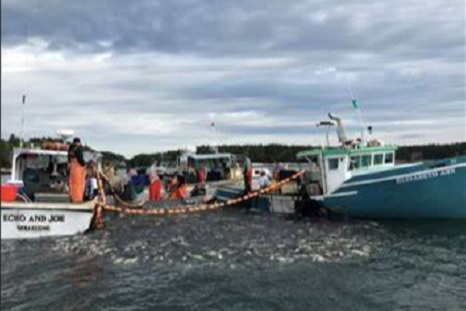
“Networks”: A rare, real look at the lives of lobstermen
“That funny looking water’s moving closer, Brooke,” Wallace says, motioning off in the nearby distance with his head as his hands work on the mooring. “That’s awful funny looking.” “Networks” is Mohnkern’s first film, and it tells a tightly focused story of a group of lobstermen from the Phippsburg village of West Point who hope to catch the shiny, surface-breaking fish known as pogies, or menhaden, causing all the ruckus in the water. It’s a story for the ages, men chasing fish and the consequences of their quest. But in just a few minutes, Mohnkern also manages to tell a story of a community of fishermen coming together for their common good and spotlights the economic impact of the migratory patterns of baitfish. >click to read< 09:32

P.E.I. lobster fishermen want exemption from new gear rule aimed at protecting whales
Island lobster fishermen should be be exempt from using gear designed to break free in the event of a whale entanglement, according to the P.E.I. Fishermen’s Association (PEIFA). The PEIFA wrote a letter to the Department of Fisheries and Oceans (DFO) to request lobster fishermen be exempt from new rules, which are expected to become mandatory by the end of 2022. The group says sighting data shows the endangered North Atlantic right whale is rarely in P.E.I. lobster fishing grounds. >click to read< 10:46
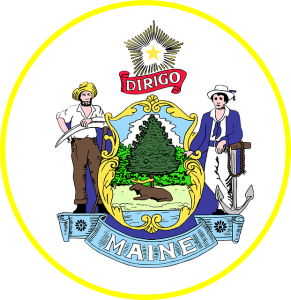
Maine: Local legislators focused on the commercial fishing industry, float several fisheries bills
The 130th Maine Legislature has released a list of bills proposed in the House and Senate,,, The lobster fishery, in particular, is grappling with the prospect of offshore wind energy development and conservation measures, both of which could affect lobstermen and their livelihood.,, Fisherman and state Rep. William “Billy Bob” Faulkingham (R-Winter Harbor) is sponsoring “An Act to Prohibit Offshore Wind Energy Development” (LD 101).,, Rep. Genevieve McDonald (D-Stonington), who also is a fisherman, is sponsoring three fishing-related bills. >click to read< 13:36
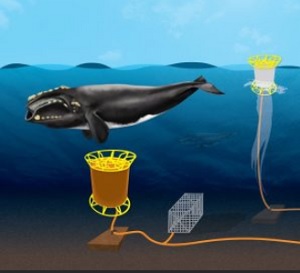
Ropeless Fishing Shows Promise, But There’s a Catch: Financial, Safety, Technology Challenges
On a cold January morning, a lobster trap sitting on a table at a manufacturing facility in Wareham is rhythmically beeping. Two final beeps have a special meaning. “So that’s the release confirmation,” explained Rob Morris, who sells acoustic release systems for the underwater technology company EdgeTech. These “ropeless” systems do away with the high number of vertical lines that run from buoys on the surface down to traps on the ocean floor. Looking at this table, Morris sees the future of the fishery, and many conservationists share that hope. Ropeless fishing eliminates vertical lines in the water column that are blamed for around half of all reported North Atlantic right whale deaths. >click to read< 10:22
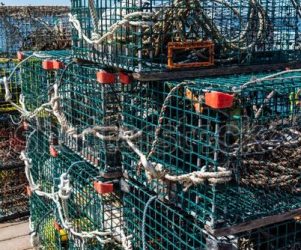
Lobstermen react to proposed NOAA rule
A Jan. 20 public meeting on the latest proposal to reduce the risk of whale entanglements in fishing lines focused on northern and eastern Maine lobster fishing. At this latest meeting, local lobstermen echoed similar concerns they aired when discussions started two years ago: NOAA is relying on incomplete and outdated data, and fishermen are not seeing right whales in Maine waters. NOAA scientists agree that more data would be useful. >click to read< 08:19
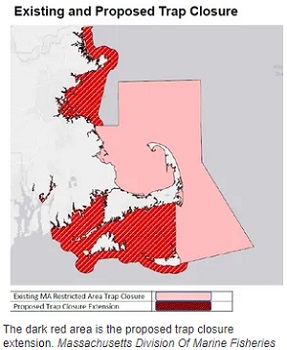
Livelihoods Threatened: Massachusetts lobstermen concerned about proposed regulations to protect whales
The Massachusetts Division of Marine Fisheries is proposing multiple amendments to current rules regulating fixed gear fisheries in an effort to protect an the North Atlantic right whale. Two local lobstermen say the proposed regulations threaten their livelihoods. “It’s gonna take roughly 30% of my income away from me,” said Dave Magee,,, Tom Tomkiewicz, a Fairhaven lobsterman, was not sold on the regulation, the regulations could cut 30% of his catch and up to 50% of his income,,, “All the bait guys, the marine supply guys, the shipyards, down to the restaurants we go to once or twice a week. We’re not going to be able to go because we won’t have the money. It’s going to affect a lot of people not even involved.” >click to read< 13:07

Massachusetts Lobstermen Raise Concerns Over Proposed Whale Regulations
At a public hearing on Tuesday, the Massachusetts Department of Marine Fisheries (DMF) shared its recommendations to extend a seasonal commercial gear closure to areas north and east of the Cape from February 1 through April 30. “I’m just trying to plan for the future of fisheries. I mean, if we have a closure this will really close down the state to any type of income,” said Mike Lane, a fisherman who asked whether the state would require modifications to other kinds of fishing gear. Officials were unable to provide an economic impact report based on these recommendations,,, (someone that was there said there was a lot of ropeless chatter) >click to read< 07:30
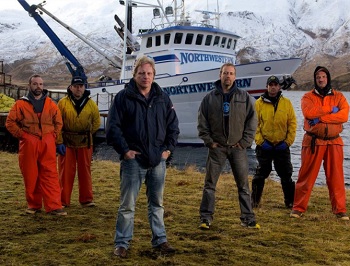
Reality TV and Real Work in the Fishing Industry
Fishing may be the world’s second oldest profession, but the industry is about as visible as a quiet cousin at a family reunion. Unassuming, keeping to itself, it is largely ignored in talk about work and the economy. All of which belies its oddly large footprint in reality TV. Some of these “fishing industry” shows look at huge, highly capitalized and often nationalized factory fishing fleets. But most usually focus on much smaller, community and family-based single-owner boat crews that are part of a local fleet. >click to read< 08:09
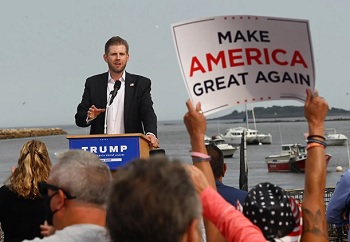
Eric Trump tells Maine lobstermen: ‘We will never, ever let you down’
When Seth Dube was growing up in Camp Ellis, Saco’s gritty seaside community boasted a robust ground fishing fleet, but the draggers are mostly gone now, replaced by lobster boats like his. The sixth-generation fisherman blames government overregulation for that industry’s demise, and used to worry lobstering could be next. That was before President Trump became a friend of the Maine fisherman, Dube said – reopening marine monuments to fishing, delaying environmental rules that would have forced some lobstermen to install greener diesel engines, inking a trade deal allowing tariff-free lobster trade with Europe and giving lobstermen trade relief for lost China sales. >click to read< 11:19
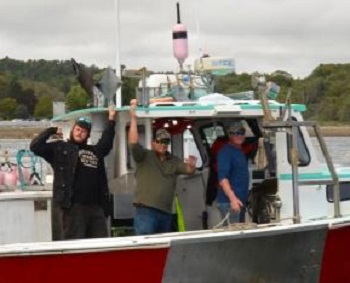
Lincolnville lobstermen rescue distressed sailor
Quick action by Lincolnville lobsterman Nick Heal and his crew, Alex Bryant and Jared Gilbert, brought a lone sailor attempting to right his capsized catamaran back to safe harbor Sunday afternoon, Sept. 13. Back at the Lincolnville dock, Martha Flint, of Rockport, was fishing with family and friends on the float. They saw the boat capsize and watched as Browne tried to right the boat, to no avail. Flint noticed Heal on the dock, getting ready to load lobster bait onto the Kristin Marie. She ran up the ramp to get his attention. lots of photos, Great job! >click to read< 07:34

A Greek tragedy? New England lobsters caught in perfect storm of warming seas and save the whales activism
Climate change, ocean acidification,,, it’s nothing compared to what will become of the industry if the self-coronated “Prince of Whales,” New Hampshire’s Richard “Max” Strahan, has his way. To lobstermen, though, Strahan has proven himself far more than a vaudevillian nuisance. The kicker, says Strahan, who gets more animated as our conversation goes on, is that the whales are pretty much doomed no matter what. In 2017, the North Atlantic right whale population didn’t reproduce at all, usually considered the death knell for an endangered species. In late June, a six-month-old right whale calf was found dead with propeller wounds off the coast of New Jersey. Lobstering had nothing to do with it, but it won’t help the industry’s case. “It’s not really that they’re being caught in fishing gear,” Strahan admits. “It’s the fact that they don’t reproduce anymore. That’s what’s killing them.” >click to read< 08:07
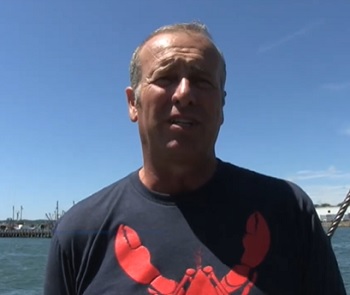
Second coronavirus wave would be ‘catastrophic,’ Massachusetts fishermen say
Commercial fishermen and lobstermen in Massachusetts already “crippled” by the coronavirus pandemic say they fear a second wave in the fall would sink the industry. “If there’s a shutdown then, it could be catastrophic,” said Joey Ciaramitaro, co-owner of Gloucester-based Captain Joe & Sons wholesale lobsters. People think of summer as the lobster season, but really, the fall is when the most lobsters get landed. That’s what we’re most concerned about: shutdowns in the fall,” Ciaramitaro said. Video, >click to read< 19:35
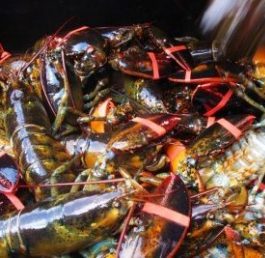
Maine: 1 in 3 Lobstermen got small Paycheck Protection Program loans
About $14.9 million in forgivable Paycheck Protection Program, or PPP, loans of less than $150,000 have been handed out to 1,358 Maine lobstermen, according to an analysis of newly released U.S. Small Business Administration data. That puts lobstermen ahead of full-service restaurants, real estate offices, beauty salons and home builders, which rounded out the top five Maine industries receiving small PPP loans. Maine’s $1.4 billion-a-year lobster industry – including those who buy, sell and process lobster as well as catch it – have received 1,495 forgivable PPP loans worth at least $24.2 million, so far. Fishermen got the lion’s share of the industry’s total PPP money, but only because they outnumber dealers, retailers and processors. Some dealers got loans of up to $1 million. >click to read< 07:15
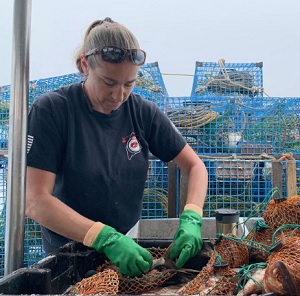
In Lobster Town U.S.A., When the industry suffers, the pain ripples.
Blaine Olsen, a lifelong lobsterman, was navigating his 30-foot boat off the coast of Stonington, Maine, when his sternman, who’s also his wife, yelled above the diesel engine’s din about the pittance the local cooperative was paying harvesters. He shot Ginny a doleful stare for a good five seconds. “Holy sh-t, man,” he said. “It costs us $600 a day to go out.” The dock price, $2.25 a pound for soft-shell lobsters, was half what it was a year ago, making it virtually impossible to earn a profit. The novel coronavirus has barely touched the public health of this corner of rural down east Maine, with Hancock County reporting just 16 cases and one death as of June 30. Its economic health is another matter,,, >click to read< 10:50
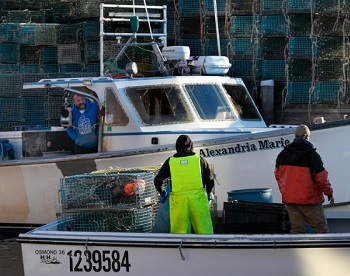
It’s time to open the economy back up! Maine Lobstermen Seek Ways To Prevent Financial Crash
Anti-glut tactics might include limiting days at sea, narrowing size limits or barring the catch of single-clawed lobsters to reduce the overall haul. In an online meeting Monday, Marine Resources Commissioner Patrick Keliher told Downeast lobstermen that he’s found no consensus on the best course of action. Lobsterman Jim Hanscom, of Bar Harbor, says he is wary of intervention by Gov. Janet Mills. “This governor scares me on a lot of levels, and the idea of her having the ability on shutting this fishery down or stopping dealers from buying, I think it’s just dangerous.” Keliher is scheduled to brief Mills on the issue Tuesday,,, >click to read< 10:40
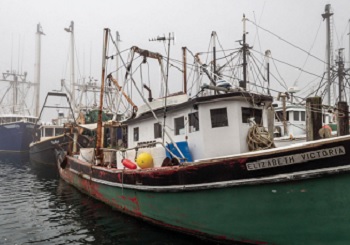
Point Judith fishermen optimistic as Northeast Canyons and Seamounts Marine National Monument restrictions ease
Removal of restrictions for an underwater national park sealed off from commercial fishing trawlers and lobstermen will now provide a bonanza of opportunities for fishing boats in Point Judith, said Fred Mattera, advocate for commercial fishing. According to Mattera, executive director of the Commercial Fisheries Center of Rhode Island, this once lucrative fishing spot will now again enable them to bring back large hauls to be sold to for restaurants, grocery stores and ingredients for other foods. Last Friday President Trump removed those restrictions and opened the area once more to fishing, but the decision has produced an outcry from various environmental groups warning of the potential destruction to unique marine life. >click to read< 14:49
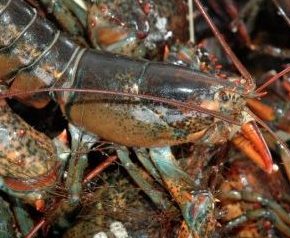
State of Maine: Lobstermen are feeling the pinch
Maine lobstermen are in a world of hurt, caught in a two-pronged assault on their livelihood. The pincer claw is the pandemic, causing their market to collapse. The crusher claw? That would be the latest lawsuit over whale rules.,, Even the elders in the fishing community are rattled. They are usually the ones who face fluctuations in the market with zen-like calm. It’s been down before, they say, and it will come back. Every year is not going to be a record-breaker. This time they’re worried. Younger fishermen who have gotten accustomed to record catches every year have taken on significant debt (bigger boats, newer trucks) and are freaking out. Jill Goldthwait >click to read< 11:09
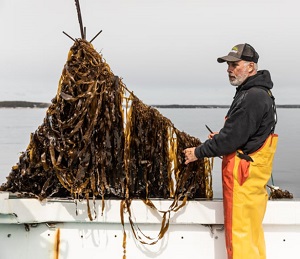
‘I’m not a quitter’: lobstermen turn to kelp farming in the face of climate crisis
Back from a day of scalloping, lobsterman Bob Baines has docked his boat, the FV Thrasher, at the Spruce Head Fishermans Co-op. His sternman, David McLellan, clad in waterproof overalls like Baines, shucks the last few hauls, tossing the meats into a bucket and the shells overboard. It’s the last week of scallop season, but there is a new venture on the horizon. Baines, 64, steers the Thrasher back out toward Hewett Island on Penobscot Bay to check on the underwater kelp farm that he “planted” in December. It’s a willowy structure made up of moorings, buoys and ropes that hovers 7ft underwater and spans 1,000ft wide, like a monster cat’s cradle. Baines is among the latest of 19 veteran lobstermen along the Maine coast who are applying their hard-earned expertise to kelp farming. >click to read< 12:46
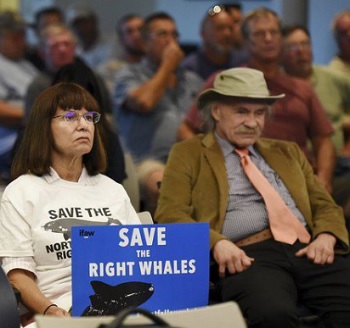
Activist Seeks Preliminary Injunction To Halt Lobster Fishing In Maine
There are new developments Friday in the legal battle over whether rope used by Maine lobstermen poses a deadly threat of entanglement to endangered North Atlantic right whales. Richard Strahan’s case is similar to one he brought in Massachusetts, where a federal judge ruled recently that the lobster fishery there violates the Endangered Species Act. Strahan says state governments and NOAA have deliberately ignored the law. In another case, a coalition of conservation groups late Friday filed their proposals for protecting the right whales. That’s after a judge’s finding that the federal government violated the Endangered Species Act by failing to stall the whales’ slide toward extinction. The Conservation Law Foundation and others say the judge should immediately bar use of vertical rope,,, >click to read< 11:42
Massachusetts Lobstermen push against whale rules – Aug 22, 2019 >click to read<
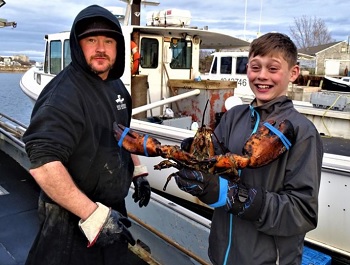
Coronavirus: NH lobstermen trying to keep afloat relying more on direct sales to the public
Andy Konchek has his own lobster boat and works as a deckhand for Capt. John Borden on the Mary Baker. They fish in federal waters and typically sell their catch to Kittery Trading Post in Maine, which was deemed “non-essential” and closed last week. Konchek said they have hauled in 300 of their traps because of the loss in sales. They are still going out for a limited catch and selling lobsters and Jonah crabs directly to customers from Pierce Island in Portsmouth to keep afloat financially. Brian Tarbell of Dover was one of Konchek and Borden’s customers last week. He said local fishermen need support now more than ever. >click to read< 08:56
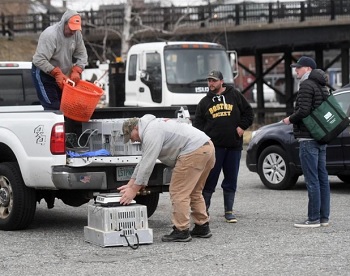
Doing Well! Lobstermen survive with off-the-boat sales
Seacoast lobstermen have seen complete sellouts of their weekly catch since dining establishments and other businesses began to shut down as a result of the health emergency – but only because they’re finding alternative solutions to sell, mostly via retail sales to the public right off the boat. Most lobstermen were notified by their wholesale dealers last week that since restaurants in Maine, New Hampshire and Massachusetts have been mandated to go takeout-only – resulting in many opting to close their doors completely – the buyers won’t be buying. There’s no one to sell to. >click to read< 19:57

































